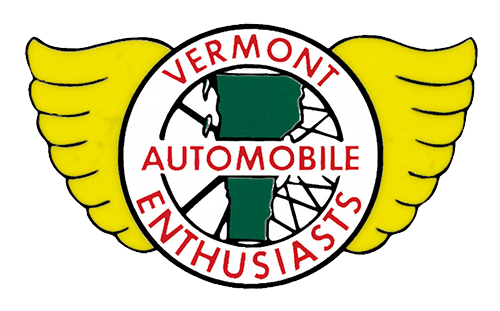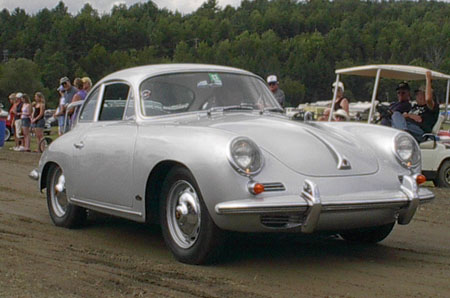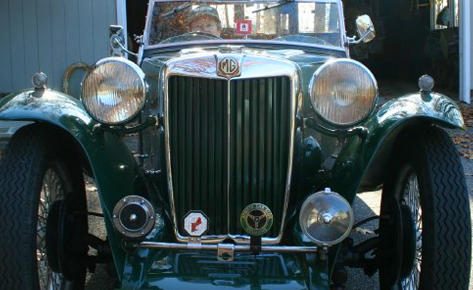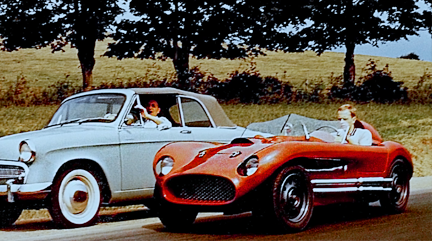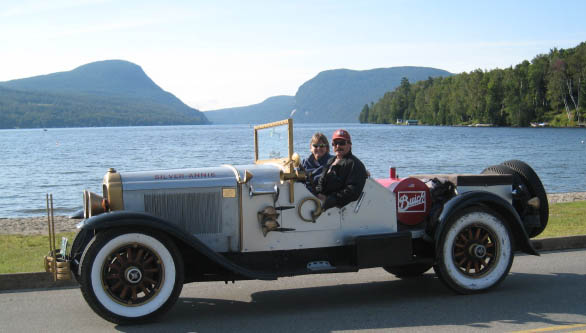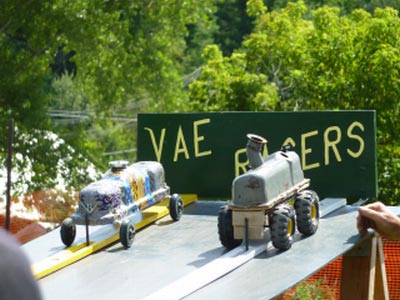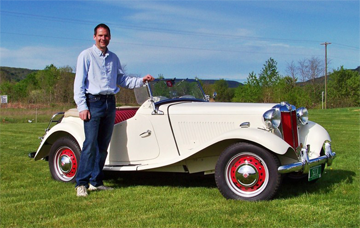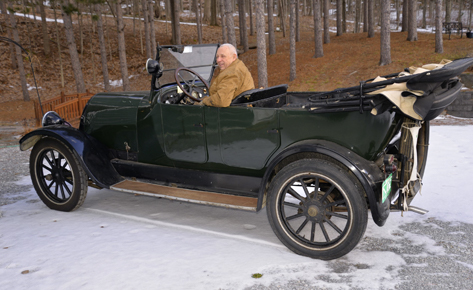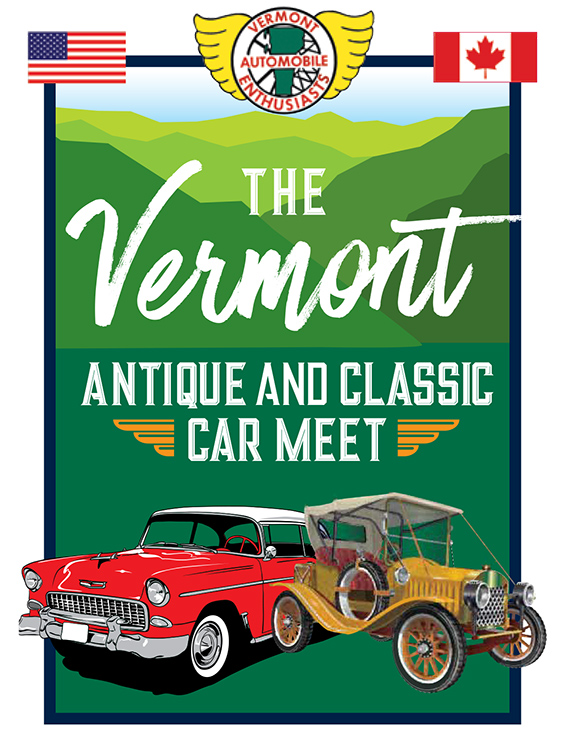Several weeks ago I was mowing the lawn with my trusty 1978 Sears lawn tractor, when the engine suddenly sputtered and quit. I also smelled gas. A quick look under the hood revealed a split fuel hose. I replaced the hose, but noticed the leaking hose actually rotted out from the inside out. Another Ethanol problem. I was toying with the idea of writing an article about the fuel system in older cars and how to avoid problems with Ethanol.
My recent experience with the Stowe Car Show has a few Ethanol stories. Saturday morning a few people walked up to me and told me that my Volkswagen smelled of gasoline. A quick inspection revealed that there was gas leaking from the rubber hose that goes from the metal pipe in the floor pan to the engine. The leaking gasoline had actually caused the paint on the frame to bubble up and peal down to bare metal. When I restored this car in ’94, I had the floor pan painted with DuPont Imron urethane paint. At the time, it was considered to be just about the toughest, most resilient industrial paint on the market. I am quite upset that my beautiful floor pan now has paint bubbling up and falling off.
After a quick trip to a friendly and helpful flea market vendor, I crawled under the car to replace the hose. At the lowest part of the hose, the rubber was actually dry rotted away. Obviously, the cloth braided Volkswagen fuel hose is not Ethanol compatible. Later in the day I was trying to help a model T owner start his car. His carburetor was leaking gasoline. The float bowl gaskets were not Ethanol compatible, and neither was his float valve. The valve was sticking closed, then open.
So now what do we do? Modern fuel line is made out of neoprene, and is Ethanol compatible. I prefer to use fuel injection hose. It costs more, but lasts longer. Make sure when you order a carb kit or a fuel pump you buy a newer kit that is Ethanol compatible. I knew about carburetor gaskets not being ethanol compatible, but I was unaware of the problem with the needle and seat float valves. The old brass ones are ok, but the valves made with plastic and rubber parts may not be.
Gas tanks and metal fuel lines are probably ok, but a lot of the gas tank sealers sold until quite recently are not Ethanol compatible. Another problem is zinc parts. Apparently, zinc can be corroded by Ethanol.
Ethanol gas is a great solvent, and will remove gum, varnish and crud in the fuel system. This will plug up lines and filters. It is also a good idea to check filters more often.
Lastly, keep this stuff away from all paint work. It is also a great paint remover.
 Please email all inquiries to: Dave
Please email all inquiries to: Dave
or snail mail
32 Turkey Hill Road
Richmond VT 05477
